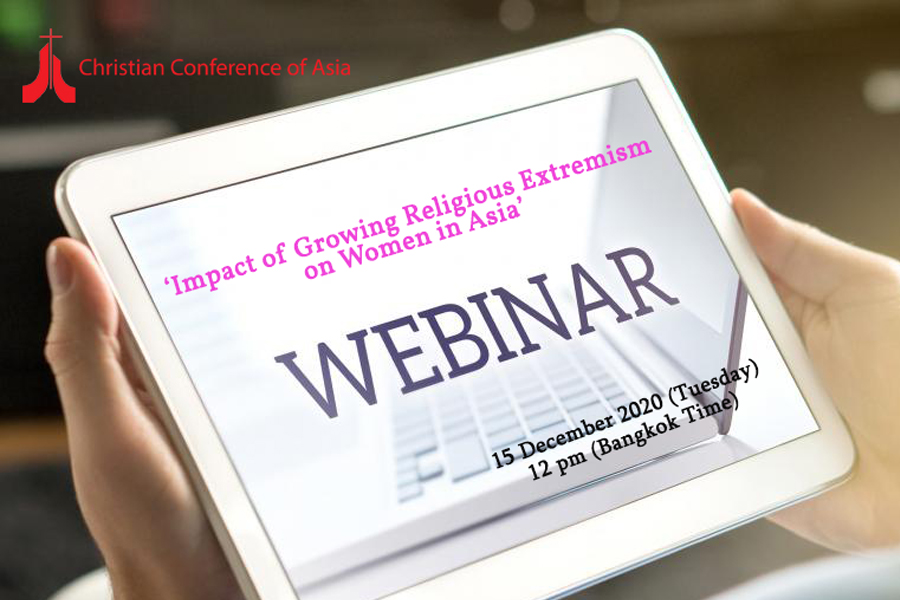‘Impact of Growing Religious Extremism on Women in Asia’ will be the focus of the upcoming CCA webinar

The next online webinar in the Christian Conference of Asia (CCA)’s webinar series is set to discuss the ‘Impact of Growing Religious Extremism on Women in Asia’. The virtual discussion is scheduled for Tuesday, 15 December 2020, at 12 noon (Bangkok time).
Most Asian countries have experienced different forms of religious extremism. The growing trend of religious extremism has intensified intolerance and conflicts in the region, which bears a deep impact on the lives and rights of women. The plight of religious minorities in Asia in recent times has become increasingly complex as such communities are subjected to oppression and violation of rights. The denial of the rights of religious minorities in Asia includes limited access to education and employment opportunities, which leads to the perpetuation of poverty. The impacts on Asian women from such religious minorities are both overt and covert with grave manifestations in their quality of life.
It is in this light that the CCA is organising this virtual discussion mainly to analyse the causes and impacts of growing religious intolerance and extremism on the status of women in Asia. The webinar will also address strategies to combat violence against women and girls and share collective actions to advocate for the protection of women from religious and ethnic minorities.
Since the webinar can accommodate only 90 participants, registration will be accepted on a first-come, first-served basis.
Please register here to receive the Zoom ID and passcode for the webinar on 15 December 2020 (Tuesday) at 12 PM Bangkok (Thailand) time:
https://us02web.zoom.us/j/87875026294?pwd=MWtCaXVhbmYzV2lLRmw3a0NpSUs0Zz09










